A philosophical journey at Pao School
Koda
Physics and Philosophy
Brown University, USA
“As members of the Pao School community come from a variety of backgrounds and may have
different values, students can learn to appreciate the others through different perspectives,
in addition to becoming more understanding and respectful of different people.”
——Y12 Koda’s mom
A familiar face in the library
Koda (Y12) is a fixture in the Pao School library, with a voracious appetite for reading and interest in a wide range of books. Due to his constant presence in the library, the library staff treat him like an honourary librarian and have even prepared a special desk for him. It wasn’t always this way however, as since coming to Pao School his reading habits have changed significantly – he now reads more English books and thinks more deeply about the books’ content.
Before coming to Pao School, Koda did not really enjoy reading in English, and even tried to avoid it. However, the immersive bilingual environment at Pao School has helped his English proficiency significantly, as have his teachers. In his English classes, Koda has learned how to more accurately interpret and analyse texts, as well as how to better understand the plots of novels. This has opened up a whole new world of English literature to Koda, allowing him to both read a wider range of texts and strengthen his English literacy.

According to Koda’s mother, as the school has a significant proportion of international teachers – many of whom are interested in Chinese society and culture – students frequently have the opportunity for cross-cultural communication and discussions about cultural differences. These discussions are often spontaneous and provide an environment where the students can frequently exercise the ability to respect and understand different cultures, whilst also developing a more multi-faceted perspective of the world.
Philosophy guides us to our inner light
Koda is especially inspired philosopher Wang Yangming, one of the most influential philosophers in the neo-Confucian tradition. Koda became interested in philosophy after reading the seminal Wang Yangming text, “Stories About the Ming Dynasty.” Before this, he did not know much about philosophy at all. In Year 10, Koda heard that the school had launched a philosophy club and he quickly signed up. He was very glad to have the opportunity to join such a co-curricular as philosophy is a complex, somewhat esoteric subject that is not necessarily appreciated at every school. Koda found that joining the Philosophy Club at Pao School helped him understand the discipline more comprehensively. At the same time, he realised that some philosophical theories were actually very much in line with his own thinking.
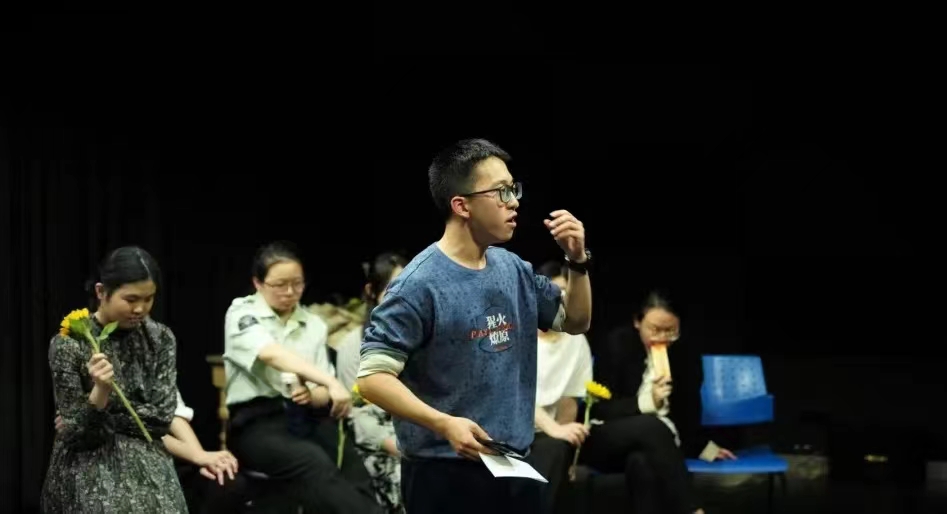
The Philosophy Club has two main objectives: deepen philosophical knowledge and promote philosophy at Pao School. The club has invited university scholars of philosophy to give lectures at the school, helping many students outside the club to become interested in the discipline. For example, Timothy Williamson, a professor of philosophy at the University of Oxford, was invited to give a lecture entitled "Where should epistemology start: skepticism and animal knowledge"; philosophical scholar Scott Soames discussed the topic "Analytic Philosophy: concepts, history and related issues”; and philosopher Bryan W. Van Norden gave a special lecture entitled "Taking back philosophy: review and learning from Chinese philosophy”.
The club has also organised and planned Philosophy Week, which was chock full of activities such as a philosophy poster design competition, lectures by university professors of philosophy, student lectures led by members of the club and philosophical film viewings. Following these efforts by the club, Pao School began to offer an IB Philosophy course in 2021, in which students both study the ideas of eminent philosophers and develop their own philosophical thinking.
"Koda is many regards an archetypal Pao School student. He has a wide range of interests
and a strong intellectual curiosity. He is always asking questions because he wants to learn
from anyone who interests him. Such is the diversity of his interests, I never know what he
will ask me about next. It might be a question about the long-running British television series
Dr. Who, or about Jin Yong’s martial arts novels, or even something legal or philosophical.
What is very interesting about Koda is that he does not just expect an answer to a question
he asks. He also enjoys exploring various unknowns, probing for knowledge. His passion
for learning and explorative spirit embody Pao School’s ethos."
——Yingyu Le, Head of High School Chinese
An open and inclusive environment
Koda's mother says that Koda has found a sense of belonging at Pao School, whilst having the freedom to explore new fields. Through the influence of his many excellent teachers, Koda was able to develop more and gained entry to the university of his dreams for his continued studies.
In Koda's view, Pao School has an open and inclusive environment that encourages students to be independent and proactive in all aspects of their lives, from academics to hobbies to spirituality and the everyday elements of boarding life. Pao School is very open about facilitating students’ growth, always providing students with as many options as possible. Pao School never tries to emphasise that there is only right way to do something, or one correct answer. In the classroom teachers encourage students to express different opinions and in general the school encourages debate and academic discussion.

Thanks to this open and inclusive environment, students are able to develop their personal interests - which span across many areas. Koda shares that at Pao School some students are partial to science, others humanities, while others are atheletes or dancers. Whole-person education has helped Koda to cultivate a hobby of his own: Nanshan Kung Fu. Over the summer, he hones his skills in this ancient sport in his hometown in Anhui. He believes that this type of kung fu both strengthens the body and contains the wisdom the ancient Chinese developed in battle over thousands of years.
In school, Koda was fortunate to meet Venessa Zhao, who practises Yang Style Tai Chi. Together with Ms. Zhao, Koda and several other students honed their Yang Style Tai Chi skills and learned about the rich elements of traditional Chinese culture contained therein.
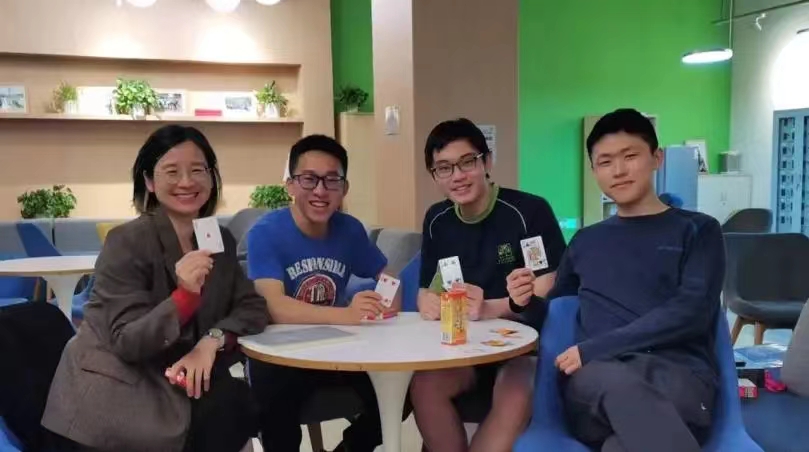
7-day boarding students playing table game with Ms. Cora
Pao School’s seven-day boarding programme also reflects openness and inclusion. The school does not set a fixed schedule for the boarding students on the weekend, but rather allows them to arrange most of the day by themselves. "This allows the students to learn to take the initiative when they need help and to be able to control their time reasonably, so that they are fully prepared for future university life," explains Koda's mother. Koda has special praise for Ms. Cora Chen, who is in charge of boarding. She both respects students’ independence and is supportive of them when they need assistance. She also spends time with the students in free time, sometimes watching movies and playing cards together. Over time, she has truly has become a trusted friend to the boarding students.
An artist begins to bloom
Susan
Fine Arts
Tufts University, USA
"As our children are about to graduate from Pao School, we hope to express our gratitude for all the
school has done for them. Pao School’s star burns bright in good and trying times alike, a source of
inspiration for us all. I hope that the school will always stick to its deeply humanistic ethos."
—— Susan's dad
Twelve years ago, Susan’s family decided to send Susan to Pao School as they believed that the school’s whole-person approach to education aligned with their own values. Over the past decade, Susan’s father has seen the whole-person education philosophy continually evolve. He believes that the school’s unique education model not only gives students a solid foundation in traditional academic disciplines but also helps them develop a comprehensive understanding of traditional Chinese culture, an open mind and cultural dexterity. As a result, he says, “Pao School students are sociable, independent, studious and insightful. We can see these qualities in all of the students at the school.”
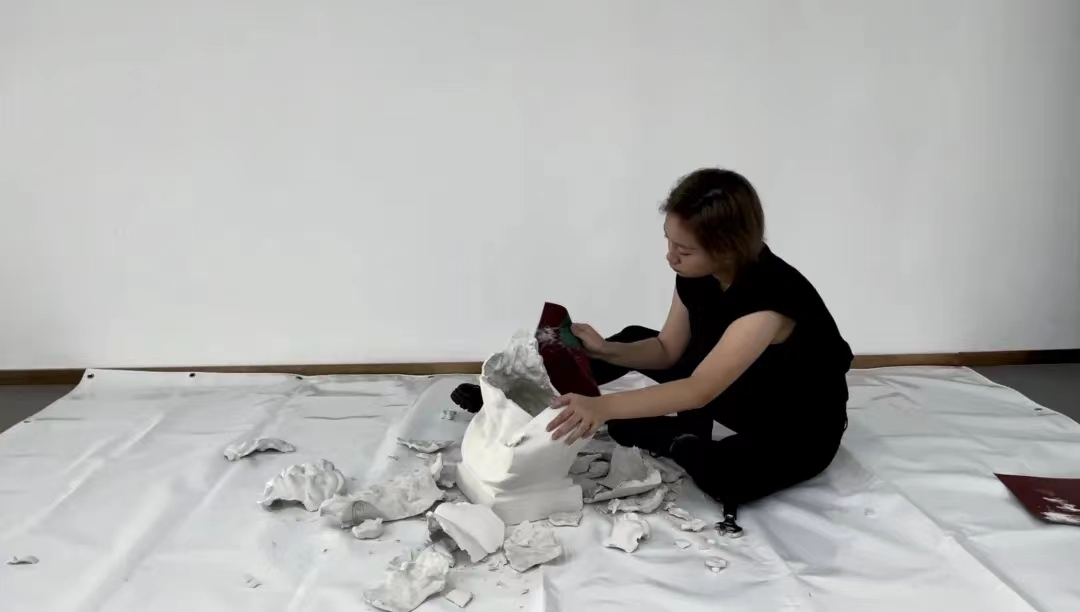
Yingyu Le, Head of High School Chinese says that Susan is a student with a strong artistic sensibility, with a impressive sense of creativity and understanding of aesthetics. In addition, she is also a down-to-earth, strong, and cheerful person, well demonstrating Pao School’s core value of compassion and the school's emphasis on cultivating strong communication skills.
A freedom to explore
Susan recalls her art education in primary school as being diversified, with a variety of art forms she could try, rather than being focused on basic art skills alone. One assignment, during which a teacher asked her to make a dinosaur out of newspapers, left a lasting impression on her. The creative nature of this exercise opened her mind to the possibility of artistic expression.
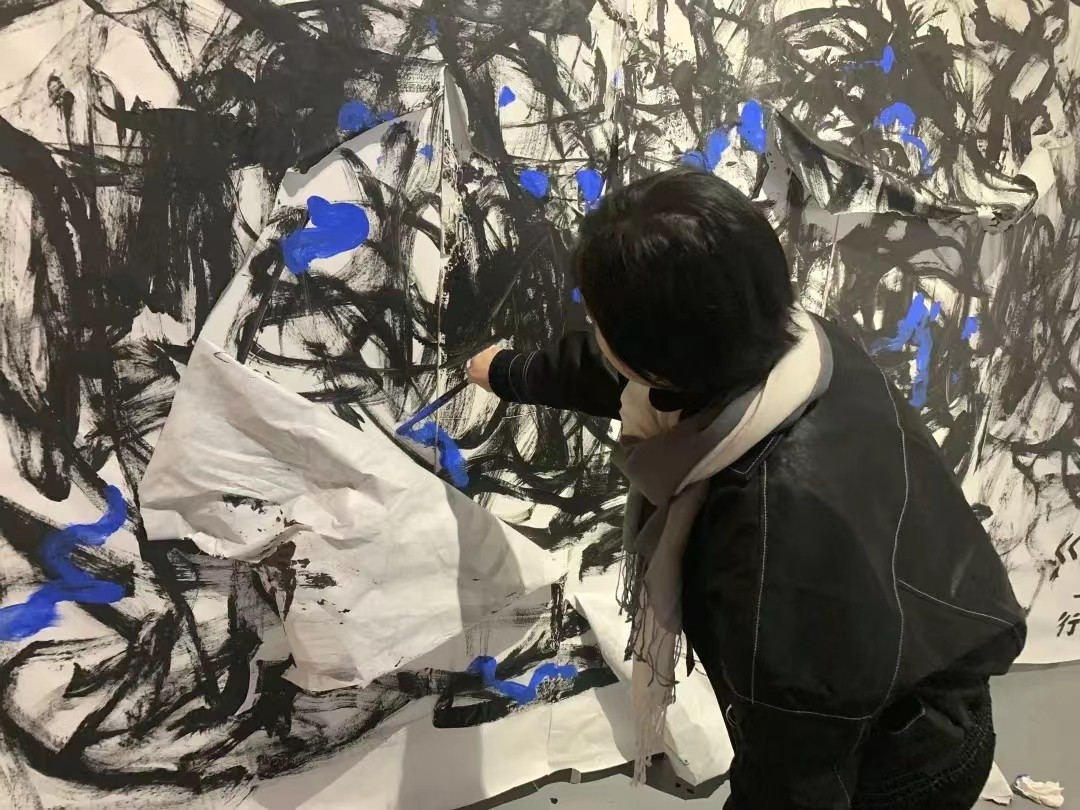
Pao School also focuses on interdisciplinary learning, as seen in Exploration Unit (EU) at the Primary School. The classes frequently mix academic topics with creativity, with Susan recalling that EU classes were often held in the art classroom. For example, in Year 5, she completed a project about volcanoes, which allowed her to not only learn more about natural science but also understand more about humanity and show off her artistic talent. Due to her enthusiasm for EU, Susan gradually developed a strong interest in geography, history, and art.
Susan’s father admits that when Susan was a young child, he never expected she would be artistically talented. Yet thanks to Pao School, which encourages children to pursue their interests and embraces diversity, Susan’s artistic talents bloomed. Her father is especially happy that the school’s teachers cultivate students’ interest in art, which he believes helps the children become more cultured and erudite. In addition, Pao School students can explore different interests without barriers such as ability or previous experience. This is as Pao School doesn’t run its programmes selectively - giving all students an equal opportunity to participate.
Always in Susan’s heart
"I have a deep affection for Pao School and my experience here will
always be in my heart. It is hard for me to say goodbye to this place."
——Y12 Susan
Susan’s father believes his daughter’s optimism, self-confidence and courage have developed thanks to Pao School’s effective character education. He is often pleasantly surprised by her strong problem-solving skills. He also lauds Pao School’s emphasis on passing on Chinese cultural traditions, saying that they are often explored through authentic and fun activities. He reserves special praise for the annual Hundred Families banquet, which is a perennial favourite with parents.

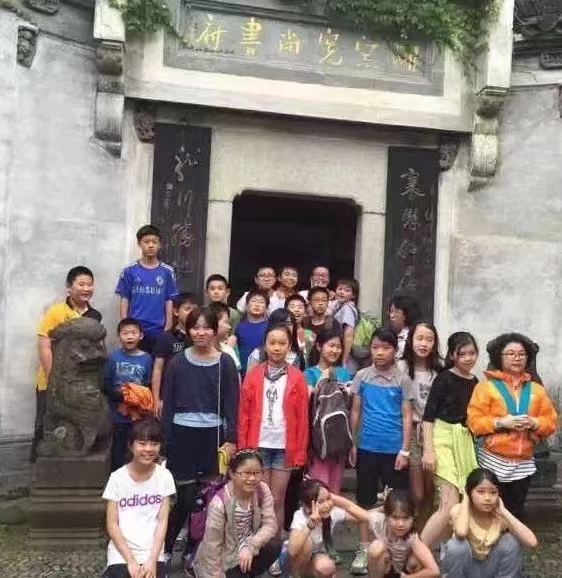
After entering IB, a new challenge for Susan was art writing, as IB has an increased focus on the discussion of art in words. To that end, art teacher Kimberley East asks questions aimed at inspiring students to think deeply and improve the quality of their writing. For example, in the photography unit, the students consider: "Has the emergence of photography changed the traditional form of painting?"
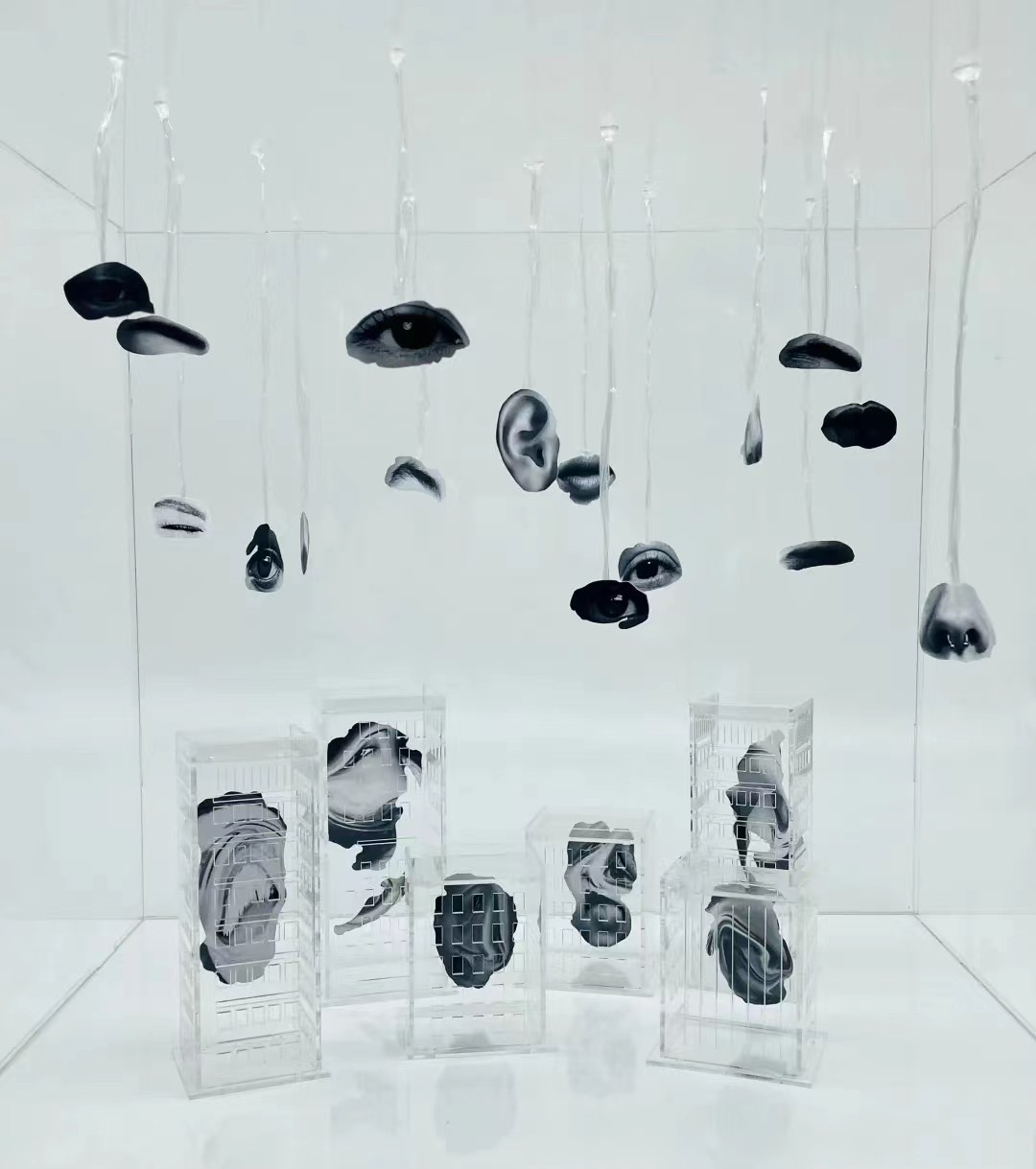
Susan's artwork in Year 12
Susan approaches these questions in an analytical and methodical manner. To support her viewpoints, she visits the school library to learn more about the topic. For her, the library is a rich resource in all subjects, no matter whether she is researching literature, history or art.
Susan has also benefited a lot through the IB group critique. In the activity the students conduct a mutual evaluation session similar to a thesis defense after completing a piece. Each person first introduces their work, then listens to other students' opinions and suggestions, and responds, while the teacher plays the role of the observer. Susan found that her classmates’ suggestions were extremely useful. Everyone listened with an open mind and let her learn to look at her works from the audience’s perspective. "This will be very helpful for our university studies in the future, because university art classes often take this form." Susan said.